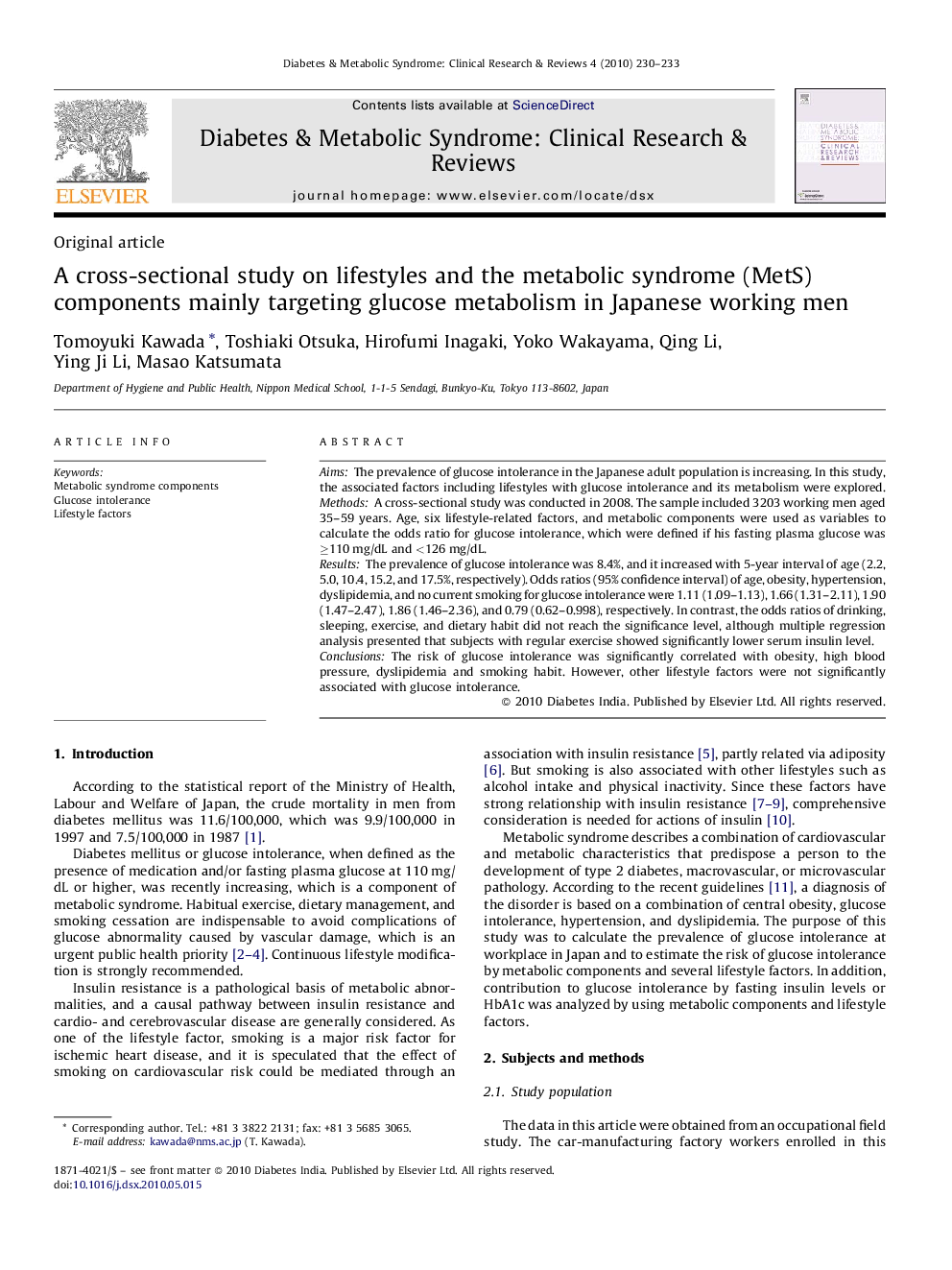| Article ID | Journal | Published Year | Pages | File Type |
|---|---|---|---|---|
| 2910303 | Diabetes & Metabolic Syndrome: Clinical Research & Reviews | 2010 | 4 Pages |
AimsThe prevalence of glucose intolerance in the Japanese adult population is increasing. In this study, the associated factors including lifestyles with glucose intolerance and its metabolism were explored.MethodsA cross-sectional study was conducted in 2008. The sample included 3203 working men aged 35–59 years. Age, six lifestyle-related factors, and metabolic components were used as variables to calculate the odds ratio for glucose intolerance, which were defined if his fasting plasma glucose was ≥110 mg/dL and <126 mg/dL.ResultsThe prevalence of glucose intolerance was 8.4%, and it increased with 5-year interval of age (2.2, 5.0, 10.4, 15.2, and 17.5%, respectively). Odds ratios (95% confidence interval) of age, obesity, hypertension, dyslipidemia, and no current smoking for glucose intolerance were 1.11 (1.09–1.13), 1.66 (1.31–2.11), 1.90 (1.47–2.47), 1.86 (1.46–2.36), and 0.79 (0.62–0.998), respectively. In contrast, the odds ratios of drinking, sleeping, exercise, and dietary habit did not reach the significance level, although multiple regression analysis presented that subjects with regular exercise showed significantly lower serum insulin level.ConclusionsThe risk of glucose intolerance was significantly correlated with obesity, high blood pressure, dyslipidemia and smoking habit. However, other lifestyle factors were not significantly associated with glucose intolerance.
